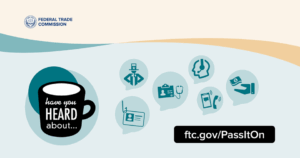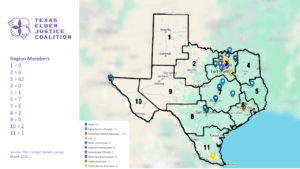
FTC Pass It On for Older Americans Month
Here are some ideas for starting conversations.
If you’re interested in investing some of your hard-earned money, learn more about investment scams.
If you’re worried about identity theft, start by reading about how identity theft works and what to do. Then watch the video 5 Ways to Help Protect Your Identity.
If you get government benefits, be alert if you’re contacted by anyone who says they’re from Social Security, Medicare, or another government agency. It could be a government impersonator scam.





